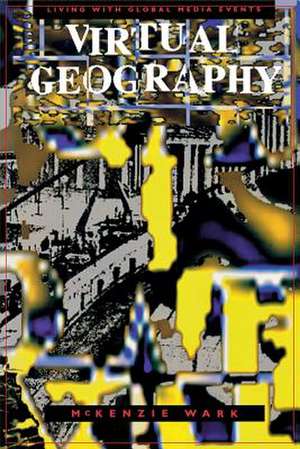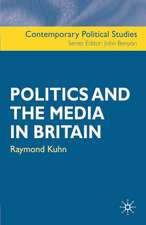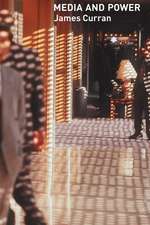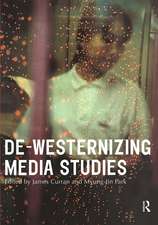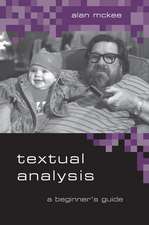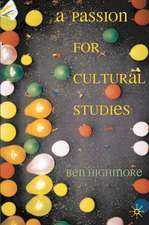Virtual Geography – Living with Global Media Events
Autor Mackenzie Warken Limba Engleză Paperback – 21 noi 1994
Preț: 144.69 lei
Nou
Puncte Express: 217
Preț estimativ în valută:
27.70€ • 28.49$ • 22.98£
27.70€ • 28.49$ • 22.98£
Carte tipărită la comandă
Livrare economică 17 februarie-03 martie
Preluare comenzi: 021 569.72.76
Specificații
ISBN-13: 9780253208941
ISBN-10: 0253208947
Pagini: 272
Dimensiuni: 155 x 233 x 17 mm
Greutate: 0.41 kg
Editura: MH – Indiana University Press
ISBN-10: 0253208947
Pagini: 272
Dimensiuni: 155 x 233 x 17 mm
Greutate: 0.41 kg
Editura: MH – Indiana University Press
Cuprins
Preface AcknowledgmentsSite #1Victory Arch, Baghdad: terminal sights...terminal sites1. vector2. eventSite #2The Berlin Wall: from roots to aerials3. wall4. site
Site#3
Tiananmen Square, Beijing: seeds of fire
5. intersection
6. lines
Site#4
7. noise
8. crash!
notes
index
Site#3
Tiananmen Square, Beijing: seeds of fire
5. intersection
6. lines
Site#4
7. noise
8. crash!
notes
index
Recenzii
Wark describes and critiques the global media information flow that made the Persian Gulf War, the fall of the Berlin Wall, the Tiananmen Square massacre, and the Black Monday stock market crash of 1987 part of everyday experience. She calls this phenomenon telethesia. This is a new geography: we are everywhere in the world at once, a place constructed entirely by the convergence of mediated flows of information--virtual geography. She does not condemn this third reality, but instead establishes the grounds for a new form of cultural studies that follows the contours of the media event and does not force the event into existing disciplines. The author's capacity to grasp and interpret these events is astounding, and her ability to provide insights into a world where unbounded information is circling the earth with the speed of light is startling. Her language at first seems forced and contrived as she pours out abstract and speculative explanations of vectors, nature, telethesia, etc. However, in the end she comes close to making the linearity of print project a world of global electronic information in which traditional modes of rationality are inadequate to explain what happens when information passes out of the orbit of one community into another. She demonstrates that the unstoppable rush of electronic information not only makes everything in the world knowable, but also carries with it the possibility of disinformation and discontrol. Recommended for upper--division undergraduate, graduate, and research collections.R./P>--R. Cathcart, Queens College, CUNY"Choice" (01/01/1995)
Notă biografică
Descriere
Cultural studies at the intersections of global media and everyday life: the Gulf War, the Beijing massacre, the fall of the Berlin Wall, the stock market crash of 1987.
